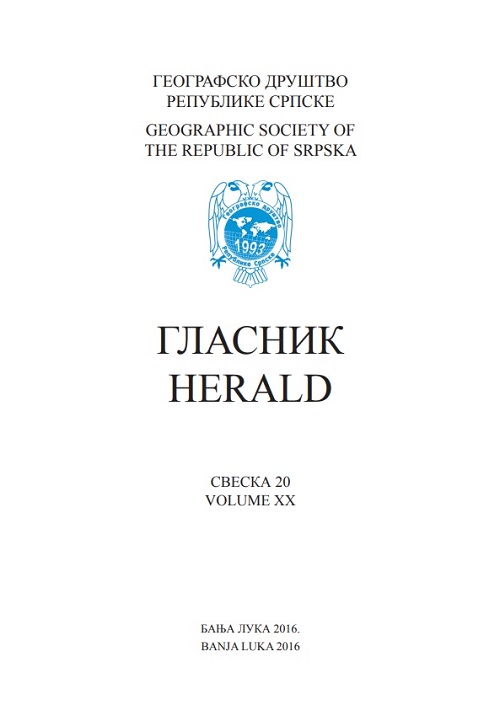ONTOLOGICAL AND EPISTEMOLOGICAL VAGUENESS OF POST-STRUCTURALIST PARADIGM IN GEOGRAPHY
DOI:
https://doi.org/10.7251/HER2016025TAbstract
Initially, the post-structuralism paradigm entered geography via the meaning theory criticism, which developed within the literary theory and philosophical hermeneutics. The landscape is being observed analogue with the text, in which process the basic characteristics of spatiality are openness, dynamics, layering and historicism. The dominant concept of spatiality, on which post-structuralist geography is based, is now relationalism that observes a location as an intersection of different types of migrations, incessant flow and identity decomposition. In addition, the notion of boundary is being denied and trans-territoriality is being insisted on. The paper attempts to outline basic problems and vagueness of the relationism perception of spatiality and post-structuralist geography based on the results of Parmenides dialogue of Plato which suggested that this concept reached its final logical consequences in denial of otherness instead of affirmation. Hence, rationalistic geography becomes policy, i.e. an ideology of space.
